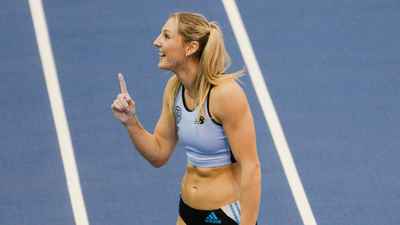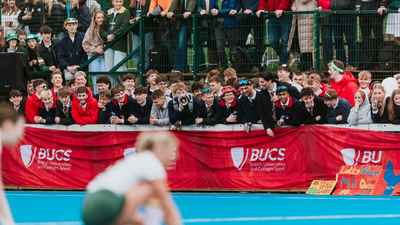Post-Training Nutrition
Focus on physical recovery becomes increasingly important as your commitment to training and competitions increases, and post-training nutrition plays an essential role.
Taking care of this area of nutrition will be one of the smartest things you can do if you want to perform at your best and reach your full potential. To recover and optimise workouts, your body needs the correct nutrients because appropriate post-training nutrition helps maximise the benefits of every session by:
-
Replenishing glycogen stores.
-
Repairing muscles.
-
Building muscles to help growth and improvement.
Eating carbs and protein after training makes recovery more effective and optimises workout gains. The carbs will replace used energy in the form of glucose, while the protein promotes muscle growth and repair. These will also help you from becoming ‘run-down’ and help maintain a healthy immune system.
Popular post-training snacks
Plan ahead and pack a convenient snack to eat immediately after your session. Some popular choices are:
-
Chocolate milk (provides carbs, protein, electrolytes, and fluid.... and on freezing days, have it hot from a flask. BOSH).
-
Peanut butter sandwiches (try with honey and banana).
-
Meal prepped pasta with chicken/tuna/ cheese/tofu.
-
Granola bars.
What are your favourite post-training snacks? Leave a comment below the lesson👇
Post-training nutrition is best provided as real nutritional food. Try not to rely on protein powders or other supplements. Check out our Supplements: The Risks lesson for the reasons why.
Timing
Experts are currently questioning the age-old advice to eat a protein snack 'within 30 minutes of exercise' for better muscle repair, growth, and recovery.
But there are still reasons for continuing this habit:
- It will help to quickly replenish energy.
- You'll probably be ravenous and want to eat something anyway.
- It will reduce the likelihood of snacking on unhealthy foods that won’t aid recovery.
- It will mean you won’t arrive home and consume the entire contents of your fridge out of desperation... before mealtime.
The Four 'R's
The four ‘R’s can help you grasp the basics:
-
Replenish - replace the carb stores, i.e. glycogen, that the body used as energy. Eating a snack immediately after training, e.g. chocolate milk and a sandwich for the journey home, will ‘fill the gap’ before your next meal and will aid the recovery process. A meal with healthy carbs, protein, fats, and colourful vegetables and fruits will help replenish energy reserves.
-
Repair - protein helps to repair the micro-tears that occur in muscles during training, making them stronger. Post-training snacks and meals that contain protein will help recovery and muscle repair.
-
Rehydrate - replace the fluid that has been lost. This can be often overlooked but is essential. Keep sipping.
-
Rest - allow the body to recover from the exertion.
Rehydration
Rehydration is also essential after training for a good recovery, so it's important you drink plenty of water to replace what was lost during exercise.
Feeling thirsty is thought to be a sign that the body is already feeling dehydrated. Taking regular sips of water before, during, and after a training session will keep your fluid levels topped up. This is a very good habit to adopt. Post-training headaches and fatigue can be signs you've not drunk enough.
The colour of your urine is a good way of checking whether you're drinking enough - the darker the colour, the more dehydrated you are. The optimal colour is pale yellow. See our hydration lesson for more detailed information.

Take Home Points
- Top athletes prioritise post-training nutrition.
- Get organised. Take protein and carb snacks to eat straight after training.
- Cereal before bedtime is a helpful way to pack in a few more carbs and protein to regain your energy reserves.
- Prioritise rehydration. Keep your water bottle on you.
*DISCLAIMER: This content is for guidance only. If you require more in-depth nutritional support, we recommend you seek help from a registered dietitian specialising in sports nutrition.
Evidence-Based Research
Our content is supported by:
-
Atan, S.A. and Kassim, M., 2019. Young football players are not miniature adults; Do young athletes need sports drinks?: A review of literature. ASM Science Journal, 12, pp.1-12. (View Paper)
-
Casa, D.J., Cheuvront, S.N., Galloway, S.D. and Shirreffs, S.M., 2019. Fluid needs for training, competition, and recovery in track-and-field athletes. International journal of sport nutrition and exercise metabolism, 29(2), pp.175-180. (View Paper)
-
Kavouras, S.A., Johnson, E.C., Bougatsas, D., Arnaoutis, G., Panagiotakos, D.B., Perrier, E. and Klein, A., 2016. Validation of a urine color scale for assessment of urine osmolality in healthy children. European journal of nutrition, 55, pp.907-915. (View Paper)
-
Schneider, M.B., Benjamin, H.J. and Committee on Nutrition and the Council on Sports Medicine and Fitness, 2011. Sports drinks and energy drinks for children and adolescents: are they appropriate?. Pediatrics, 127(6), pp.1182-1189. (View Paper)










